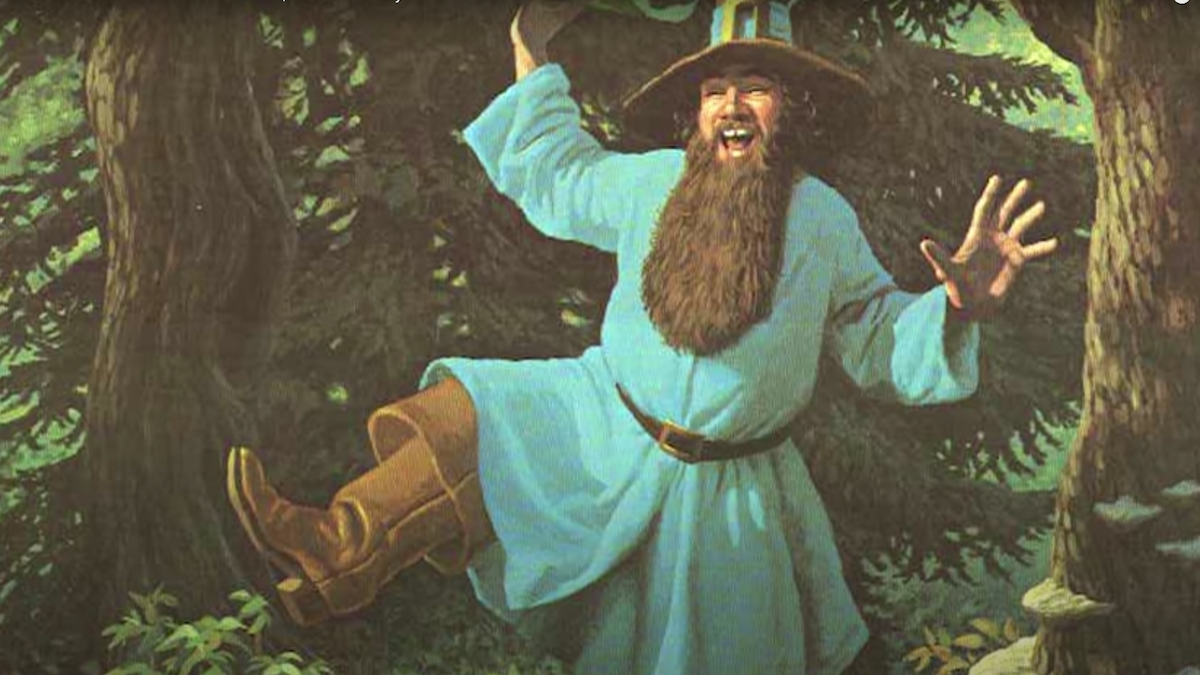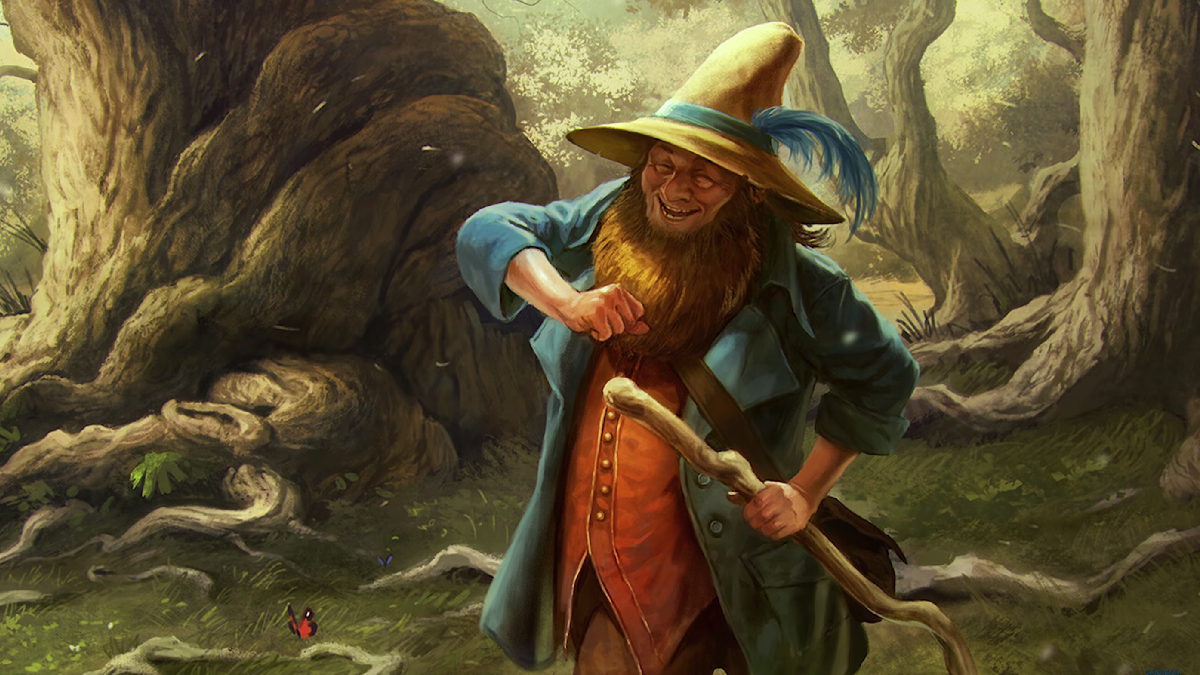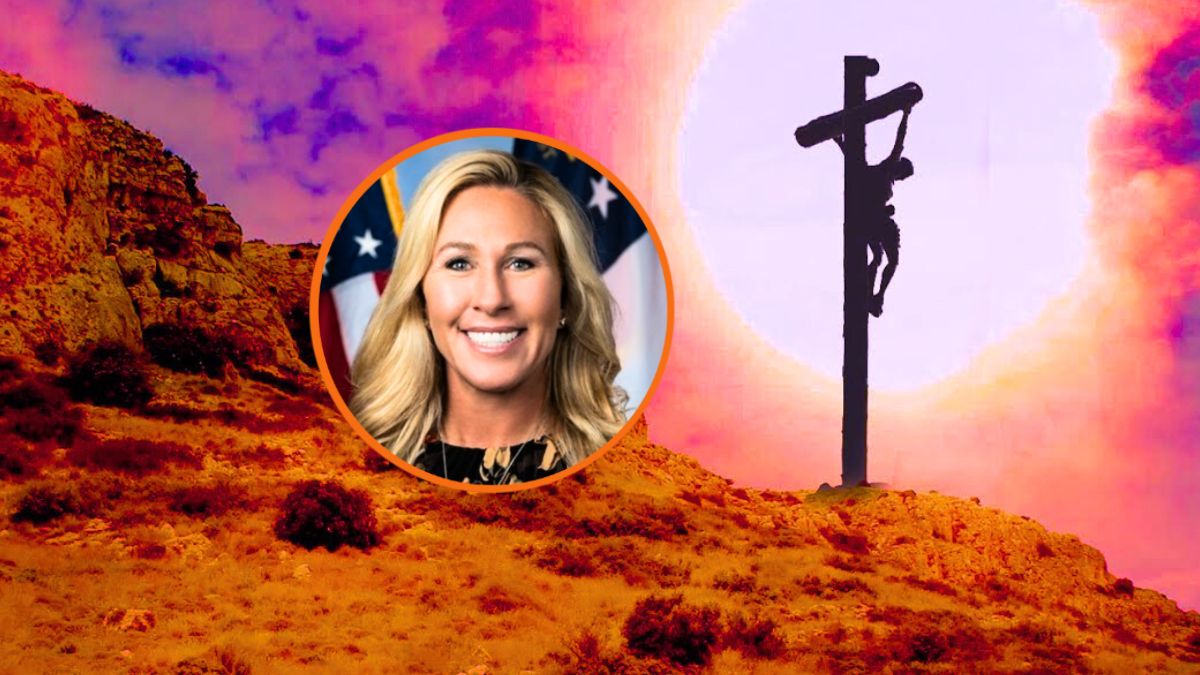With the announcement that Tom Bombadil is appearing in the second season of The Lord of the Rings: The Rings of Power, Middle-earth gatekeepers are once again mustering the éored and wondering if one of their favorite characters, the merry fellow who is as old as Arda itself, will be the latest victim of Amazon’s mishandling of the franchise.
When Peter Jackson was developing his live-action Lord of the Rings film trilogy, he decided to exclude the seventh chapter of The Fellowship of the Ring, “In the House of Tom Bombadil,” wherein the Hobbits, having ventured deep into the Old Forest, are found and saved by a figure who calls himself Tom Bombadil.
Bombadil is a mysterious figure who seems to have a primordial authority over nature. He even takes the One Ring in his hand and tosses it around at one point when hosting the Hobbits in his house. Jackson decided to leave out Tom as it would ruin the movie’s pace, a decision that many fans applauded.
After all, dealing with an enigmatic creature that eludes the understanding of even the wisest souls in all of Middle-earth (and that list includes Gandalf) is a headache in and of itself, and besides, as Tolkien himself says, “all’s well as ends better.”
Alas, it seems that Amazon didn’t receive that particular memo.
Why Tom Bombadil’s appearance in The Rings of Power is a cause for concern

For those unfamiliar with the character, Tolkien always intended Bombadil to remain a mysterious figure in Arda. The character calls himself “eldest,” while his Elvish name translates to “oldest and fatherless.” Some fans have theorized that Bombadil is the manifestation of the spirit of Arda itself, or perhaps an insert of J.R.R. Tolkien, or even a meta character not bound by the story.
Whatever his true origin and nature, it’s clear that depicting Bombadil in any format will cause trouble, as even Tolkien himself wasn’t sure what he wanted the character to be. What’s more, his carefree nature draws a stark contrast with the current conflicts of the tale. The whole point of “In the House of Tom Bombadil” was to give the Hobbits a short and incongruous respite before thrusting them out into a world of danger again, and that is a role our merry fellow could perform.
Including Tom Bombadil in the conflicts of the Second Age where The Rings of Power takes place, however, is a risky creative choice because of all the reasons listed above. In fact, it seems that though they can’t resist the hype factor, the show’s producers understand this perfectly.
As Patrick McKay explained in a recent Vanity Fair profile:
“There’s a reason why he hasn’t been in prior adaptations, because in some ways he’s sort of an anti-dramatic character. He’s not a character who has a particularly strong agenda. He observes drama, but largely doesn’t participate in it. In The Fellowship of the Ring, the characters kind of just go there and hang out for a while, and Tom drops some knowledge on them. Knowledge that’s not particularly relevant to anything that they’re doing or about to do.”
I daresay there was indeed a reason the other adaptations decided to forego Tom entirely, but bear with me because it gets even worse from here.
The showrunners have understood that Bombadil can serve no narrative function, so what they’ve decided to do is make one for him.
“We started thinking, ‘What does he care about? And how can that be a doorway to drama?’” J.D. Payne continues to explain. “We know he cares about the natural world. And we know he is a helper. He’s not going to push you, but he will help you.”
Insisting on developing a character that even Tolkien found confusing — and tried to include in the story as little as possible — is a baffling, almost arrogant, endeavor. And despite their insistence that they’ve understood the character, his part in the tale seems to incorporate what would be the antithesis of Tom Bombadil.
“In our story, he has gone out to the lands of Rhûn, which we learn used to be sort of Edenic and green and beautiful, but now is sort of a dead wasteland,” Payne continues. “Tom has gone out there to see what’s happened as he goes on his various wanderings.”
So Bombadil, this mysterious force of nature, is now a wanderer like Gandalf, which goes in the face of what Tolkien intended for the character. In a 1954 letter to fellow Inkling member Nevill Coghill, Tolkien explains Bombadil as merely an “observer” of the world.
“But Tom Bombadil is just as he is. Just an odd ‘fact’ of that world. He won’t be explained, because as long as you are (as in this tale you are meant to be) concentrated on the Ring, he is inexplicable. But he’s there – a reminder of the truth (as I see it) that the world is so large and manifold that if you take one facet and fix your mind and heart on it, there is always something that does not come in to that story/argument/approach, and seems to belong to a larger story. But, of course, in another way, not that of pure story-making, Bombadil is a deliberate contrast to the Elves who are artists. But Bombadil does not want to make, alter, devise, or control anything: just to observe and take joy in the contemplating the things that are not himself.”
Bombadil is an enigma that shouldn’t be explored. The fact that he is popular in the fandom (not to mention a banger of a cosplaying choice, among other things) should have no bearing on his standing in the story, or his future in the franchise.
From a show-running, storytelling perspective, I understand what Payne and McKay are trying to accomplish here. Even though we have many legendary Lord of the Rings figures like Gandalf and Galadriel in this new tale, there are only so many people you can incorporate into the story before you run out of familiar faces. Tom Bombadil is here to rectify that but at the cost of the character itself.
Perhaps it’s not a simple thing to ask, but would that Hollywood understood you should leave well enough alone, and that the point of a mystery is to remain a mystery.










Published: Jun 24, 2024 02:30 pm